Political economy, branch of social science that studies the relationships between individuals and society and between markets and the state, using a diverse set of tools and methods drawn largely from economics, political science, and sociology. The term political economy is derived from the Greek polis, meaning “city” or “state,” and oikonomos, meaning “one who manages a household or estate.” Political economy thus can be understood as the study of how a country—the public’s household—is managed or governed, taking into account both political and economic factors.
Historical Development
Political economy is a very old subject of intellectual inquiry but a relatively young academic discipline. The analysis of political economy (in terms of the nature of state and market relations), both in practical terms and as moral philosophy, has been traced to Greek philosophers such as Plato and Aristotle as well as to the Scholastics and those who propounded a philosophy based on natural law. A critical development in the intellectual inquiry of political economy was the prominence in the 16th to the18th century of the mercantilist school, which called for a strong role for the state in economic regulation. The writings of the Scottish economist Sir James Steuart, 4th Baronet Denham, whose Inquiry into the Principles of Political Economy (1767) is considered the first systematic work in English on economics, and the policies of Jean-Baptiste Colbert (1619–83), controller general to Louis XIV of France, epitomize mercantilism in theory and in practice, respectively.
Political economy emerged as a distinct field of study in the mid-18th century, largely as a reaction to mercantilism, when the Scottish philosophers Adam Smith (1723–90) and David Hume (1711–76) and the French economist François Quesnay (1694–1774) began to approach this study in systematic rather than piecemeal terms. They took a secular approach, refusing to explain the distribution of wealth and power in terms of God’s will and instead appealing to political, economic, technological, natural, and social factors and the complex interactions between them. Indeed, Smith’s landmark work—An Inquiry into the Nature and Causes of the Wealth of Nations (1776), which provided the first comprehensive system of political economy—conveys in its title the broad scope of early political economic analysis. Although the field itself was new, some of the ideas and approaches it drew upon were centuries old. It was influenced by the individualist orientation of the English political philosophers Thomas Hobbes (1588–1679) and John Locke (1632–1704), the Realpolitik of the Italian political theorist Niccolò Machiavelli (1469–1527), and the inductive method of scientific reasoning invented by the English philosopher Francis Bacon (1561–1626).
Many works by political economists in the 18th century emphasized the role of individuals over that of the state and generally attacked mercantilism. This is perhaps best illustrated by Smith’s famous notion of the “invisible hand,” in which he argued that state policies often were less effective in advancing social welfare than were the self-interested acts of individuals. Individuals intend to advance only their own welfare, Smith asserted, but in so doing they also advance the interests of society as if they were guided by an invisible hand. Arguments such as these gave credence to individual-centred analysis and policies to counter the state-centred theories of the mercantilists.
In the 19th century English political economist David Ricardo (1772–1823) further developed Smith’s ideas. His work—in particular his concept of comparative advantage, which posited that states should produce and export only those goods that they can generate at a lower cost than other nations and import those goods that other countries can produce more efficiently—extolled the benefits of free trade and was pivotal in undermining British mercantilism. About the same time the utilitarianism of Jeremy Bentham (1748–1832), James Mill (1773–1836), and Mill’s son John Stuart Mill (1806–73) fused together economic analysis with calls for the expansion of democracy.
Smith’s notion of individual-centred analysis of political economy did not go unchallenged. The German American economist Friedrich List (1789–1846) developed a more-systematic analysis of mercantilism that contrasted his national system of political economy with what he termed Smith’s “cosmopolitical” system, which treated issues as if national borders and interests did not exist. In the mid-19th century communist historian and economist Karl Marx (1818–83) proposed a class-based analysis of political economy that culminated in his massive treatise Das Kapital, the first volume of which was published in 1867.
The holistic study of political economy that characterizes the works of Smith, List, Marx, and others of their time was gradually eclipsed in the late 19th century by a group of more narrowly focused and methodologically conventional disciplines, each of which sought to throw light on particular elements of society, inevitably at the expense of a broader view of social interactions. By 1890, when English neoclassical economist Alfred Marshall (1842–1924) published his textbook on the Principles of Economics, political economy as a distinct academic field had been essentially replaced in universities by the separate disciplines of economics, sociology, political science, and international relations. Marshall explicitly separated his subject—economics or economic science—from political economy, implicitly privileging the former over the latter, an act that reflected the general academic trend toward specialization along methodological lines.
In the second half of the 20th century, as the social sciences (especially economics but also political science) became increasingly abstract, formal, and specialized in both focus and methodology, political economy was revived to provide a broader framework for understanding complex national and international problems and events. The field of political economy today encompasses several areas of study, including the politics of economic relations, domestic political and economic issues, the comparative study of political and economic systems, and international political economy. The emergence of international political economy, first within international relations and later as a distinct field of inquiry, marked the return of political economy to its roots as a holistic study of individuals, states, markets, and society.
As many analyses by political economists have revealed, in actual government decision making there is often a tension between economic and political objectives. Since the 1970s, for example, the relationship between the United States and China has been replete with difficulties for both countries. China consistently has sought integration into the world economy—an effort best illustrated by its successful campaign to join the World Trade Organization (WTO)—but has resisted domestic political liberalization. The United States often has supported China’s economic reforms because they promised to increase trade between the two countries, but the U.S. government has been criticized by other countries and by some Americans for “rewarding” China with most-favoured-nation trading status despite that country’s poor record of upholding the basic human rights of its citizens. Likewise, China’s government has faced domestic criticism not only from supporters of democracy but also from conservative Chinese Communist Party members who oppose further economic reforms. This example reflects the complex calculus involved as governments attempt to balance both their political and their economic interests and to ensure their own survival.

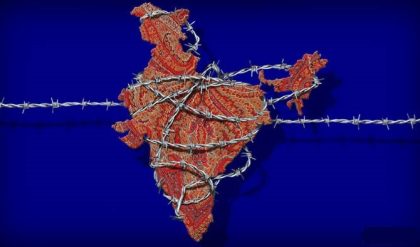
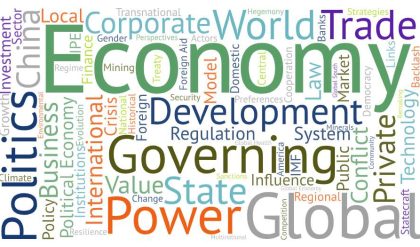
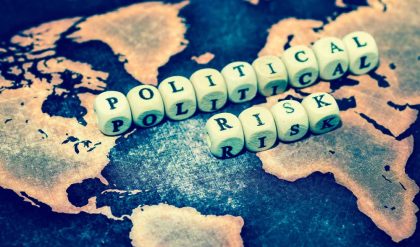
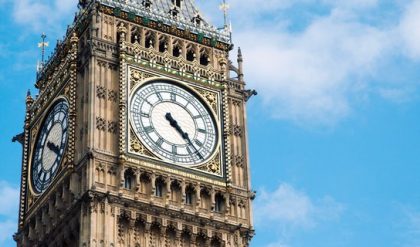
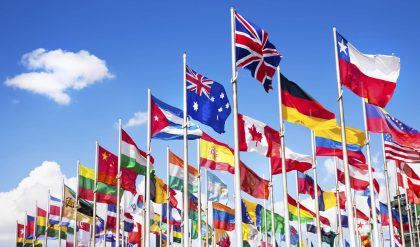
Comments are closed.